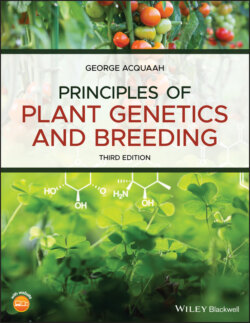Читать книгу Principles of Plant Genetics and Breeding - George Acquaah - Страница 32
1.8 Training of plant breeders
ОглавлениеTraining of plant breeders is a critical consideration in the strategies for addressing global food security. There is the need to train highly skilled professionals who will lead national agricultural research programs to address critical needs in developing local varieties for agricultural production. The traditional approach was offering scholarships to talented scholars from developing countries to pursue terminal degrees at overseas universities. Some of these scholars did not return to their home countries after training. More importantly, many of those who returned often worked on crops that were not native to their countries during their training. Significant efforts have been made to provide advanced training at the graduate level to scholars at their national universities or international institutes. In 2000, the African Center for Crop Improvement (ACCI) was created at the University of Kwazulu‐Natal, South Africa, in collaboration with Cornell University, for the purpose of training plant breeders for Africa. The initiative was so successful that a parallel program, West Africa Center for Crop Improvement (WACCI) was established at the University of Ghana, Legon, in 2009. The initiative was supported by the Bill and Melinda Gates Foundation, the Rockefeller Foundation, and later by the Alliance for a Green Revolution in Africa (AGRA). These scholars are able to work with African crops during their training, thereby making the transition to professional practice as plant breeders after training seamless (see Box 1.1) (Figure 1.1).
Figure 1.1 The yield of major world food crops is steadily rising. A significant portion of this rise is attributable to the use of improved crop cultivars by crop producers.
Source: Drawn with data from the USDA
.
